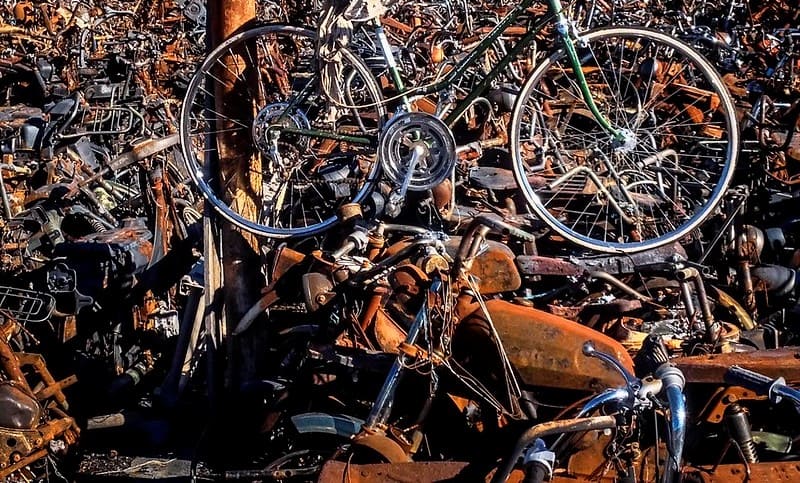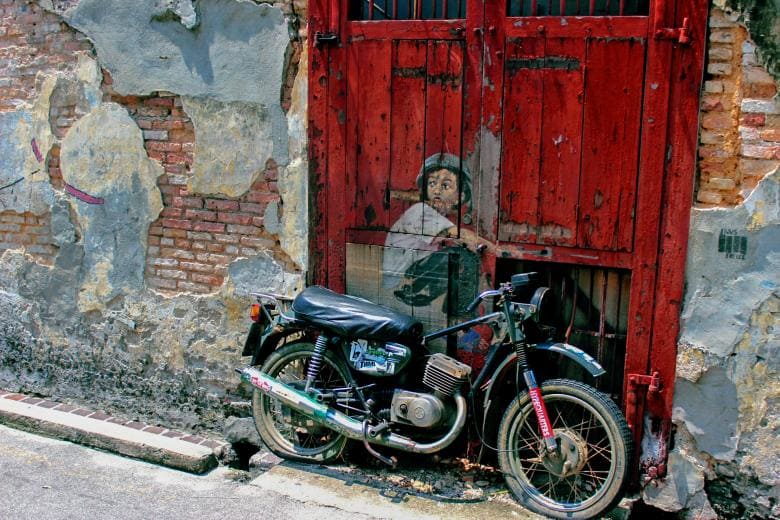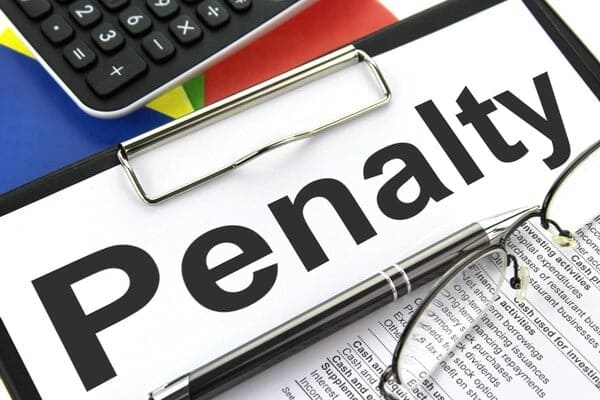How to scrap old bike | How to scrap a bike in India | How to give bike for scrap?
In India, scrapping an old motorbike requires following the appropriate procedures so that legal obligations are met and scrap value is increased. The scrapping of a vehicle is implemented in view of the Vehicle Scrappage Policy widening its scope to scrapping unnecessary and pollutant vehicles. Below is an all-inclusive guide on how to scrap old bike legally in India?.
The Scrappage Policy of the Indian Government towards Old Vehicles
In order to enhance the environment in India the government of India launched the vehicle scrappage policy for the reduction of pollution that comes as a result of aged automobiles. Such policies state that bikes older than fifteen years have to undergo fitness tests. Those who do not pass the evaluation norms are eligible for scrapping. Usually, the average scrap value of a bike ranges between four to six percent of the net showroom value with the figure being calculated depending on the condition and weight of the motorbike.

Scrap my bike | Scrap your bike
How to Scrap Old Bike: Factors influencing the bike scrap rate
Factors like the bike’s condition, the market for scrap as well as the geography will determine the bike scrap rate. So far it is possible to determine that the price of scraps on the bikes can vary between 16 and 70 rupees per kilogram. As an example, a bike that has been scrapped can reach a value of approximately rupees 3500, which can be attributed to its weight and the materials it is constructed from.
In case if anyone want to scrap their bikes, it is advisable that they solicit quotations from several authorized scrap dealers so that they are able to make the most out of the bike scrap rate for their motorcycle.
How to sell your bike for scrap?
For those who are willing to sell their bike for scrap, the procedure is very simple and useful. Begin by checking the physical condition of the bike frame and collecting the requisite documentation such as the Registration Certificate (RC), and pollution certificate. Subsequently, get an authorized scrap dealer to give you their quotations because price will depend on the weight and material composition of the bike. After you opt for a dealer, he/ she issues a scrap certificate which is needed for the de-registration of the bike from RTO. Apart from earning some money by selling the bike, it also helps in going green by re-cycling materials.
How to Scrap an Old Bike Legally in India: Step-by-Step Process
Step-by-step process to scrap your old bike or motorcycle
Step 1: Check your bike’s condition to assess your bike’s Eligibility Status for scrapping
The very first thing to keep in sight is whether the bike is in need of landing in a junk yard or has the potential for future use. Generally, for any bike that has failed in passing the fitness test, it is regarded as End-of-Life Vehicle ELV which requires recycling.
Step 2: Approach an Authorized Scrapping Center
- Get in contact with a vehicle scrapping center or recycler which is authorized by the government.
- These centers are present in the local directories or can be found through the Internet.
- There is also the option of driving your bike to the scrapping location or calling for its pickup (keep in mind that there may be additional fees for towing) in case one wishes to book an appointment for the scrapping process.
Step 3: Gather Required Documents
In order to begin the procedure of scrapping your bike, the following documents will be needed.
- Registration Certificate (RC) of the bike.
- Insurance Policy such as a Third party policy would do.
- Certificate of ownership / Owner ID Proof
- PUC (Pollution Under Control) Certificate.
- A scrap certificate that is applied for and is provided by the scrap dealer.
- An affidavit confirming there are no loans outstanding or other claims against the bike.
Prior to going to the vehicle scrapping center ensure the above documents are ready available with you.
Step 4: Complete the Fitness Test
In case the age of the bike goes beyond fifteen years there is need for a fitness check at the authorized center. In case of failure:
- A certificate is issued to the owner indicating that the person has not performed well in the tests.
- The bike is considered unfit for use and is suitable for scrapping.
Step 5: How to Surrender Registration and get the Scrap Certificate
For those who are planning to scrap their bike, the following process should be followed when taking it to the scrapping yard:
- Notify the RTO office that you are going to scrap the bicycle.
- Give back the registration number and also the chassis number that was assigned to the vehicle.
- The ideal method would be to have the scrap dealer sign a confirmation letter while photographs are taken as evidence of scrapping.
Step 6: Cancel Registration with RTO
In order to successfully cancel the registration of the bike:
- Fill in the prescribed application for the cancellation of registration certificate at the RTO.
- Provide all supporting documents including the scrap certificate and affidavit.
- The records of the RTO will incorporate the particulars of your vehicle for future reference.
Benefits of Scrapping Your Old Bike
Scrapping your old bike in a legal manner ensures that you do not only protect the environment but you get to enjoy several benefits as well:
- Scrap Value: Be paid cash relative to the weight as well as materials of the bike used.
- Discounts on New Purchases: Based on the scrappage certificate that you present on new purchases of vehicles, you may get discounts.
- Reduced Road Tax: There are allowances for road tax when registering new vehicles.
RTO Rules regarding scrapping of two-wheelers in India
There are certain rules and procedures which have been set up by the Regional Transport Office (RTO) to ensure that two wheelers are properly scrapped in India without endangering the environment. Below are the most significant rules:

1. Informing RTO
- Scrap Intention: Anyone who wants to Scrap a bike has to contact RTO before proceeding to scrap the motor bike. The said notification should contain useful information like the registration number, make, model and other information that justifies drivetrain scrapping.
2. Fitness Test Requirement
- Compulsory Fitness Test: Depending on certain age they possess ‘age is one’ barrier. In this case, two wheeled vehicles which are older than fifteen years must subject themselves to a fitness test. If the vehicle fails this test, it is classified as an End-of-Life Vehicle (ELV) and subsequently affirms its position for scrapping.
3. Formalities of Paper Work
- Official Paper Work: Owner has to transfer a lot of papers for his or her two wheeler bike, not limited to: original Registration Certificate (RC), Identity card, selling of parts to the local police and others.
4. Cancellation of Registration
- De-registration: A bike registration certificate must be canceled with the RTO once it has been made unusable. No legal or financial responsibilities associated with the vehicle remain. The cancellation process includes the surrendering of a scrap certificate issued by an approved scrapping center.
5. Compliance with Environmental Regulations
- Responsible Disposal: If there is an improper disposal, RTO may request an evidence from a registered scrapyard to confirm that all components can be recycled or are disposed of safely.
6. Legal Consequences
- Fines for Non-compliance: Lack of compliance owing to circumventions of these rules can be expensive in monetary terms and others such as imprisonment. All owners would have to undertake each of the steps as stated proceeds to avoid problems.
Two wheeler owners following these guidelines will be able to carry out the scrapping process in a legal and efficient manner and will also be adding to the cause of saving the environment.
Penalties for not scrapping a bike according to RTO rules
In India, if the old bikes aren’t scrapped according to RTO standards, there are a number of consequences that follow:
1. Using an Unregistered Vehicle
Two wheelers that have not been aged and don’t get scrapped, are deemed unregistered. This is a strict violation of the Motor Vehicles Act 1989 which deals with registration of vehicles. Driving an unregistered vehicle may attract fines as well as other legal issues.
2. Fines on Non-adherence
- Green Cess: For people owning older vehicles & still don’t scrap the bikes, a green cess constituted by up to 10% – 15% of the road tax is levied and enforced to support such policies more in line with local contours. This fee is charged tactically to combat pollution by implementing scrapping of old vehicles.
- Traffic Violations: A person riding without a registration of his vehicle can be fined between ₹1000 to 5000 or more depending upon the violation and local practices of enforcement and regulation.
3. Legal Punishments
There can be legal repercussions for not scrapping a bicycle which has been categorized as unfit, such as being sued for breaching vehicle laws. This could determine:
- Confiscation of the Bike: Such a vehicle may be considered for confiscation by the authorities if actively located and operated without submitting to registration.
- Disqualification from Insurance: A vehicle that is unfit for use lacks the ability to be insured, leaving the owner responsible for any liability resulting from accidents or damage incurred during the use of the bike.
4. Costs Aggravation Over Discipline
Failure to scrap an old motorcycle can result in increased expenditure in terms of penalties that could be levied and the costs to be incurred in getting the vehicle fit for use again. Also, possessing an unregistered vehicle brings about extra costs which should not be incurred because the vehicle is unlegalized for use.
Such penalties can be avoided together with the misuse of the environment if only the RTO instructions and old bikes’ disposal are observed by the owners.
What are the consequences of not canceling the RC after scrapping a bike?
Failing to cancel the Registration Certificate (RC) after a bike is scrapped has serious consequences that include the following:

- Use of Illegal Documents: If the RC is not canceled, nefarious individuals may attempt to forge the documents of the vehicle and provide new identity to stolen ones or get the vehicle engaged in vices which could put the real owner of the scrapped bike into problems if the bike so scrapped is used in commission of a crime.
- Legal Consequences: In circumstances where the scrapped bike is willfully committed for illegal and unlawful acts, the original owner may be in a position to face law. This may arise from criminal charges or civil responses since the owner of the vehicle will be liable to the repercussions on the ownership.
- Higher Chances for Theft: If the RC has not been canceled, there are high chances or possibilities of theft since the vehicle’s identity could be used by the thieves with little strain on their part to steal or misappropriate the vehicle.
- Complications with Insurance Claims: These situations arise whereby one makes a claim seeking for total loss where the RC has not been canceled. It is more likely to be complex and creates inconvenience on the insurers since most of them would require the RC to be proof enough for the settlement to be done.
- Possible Penalties and Fines: Just as there might be no specific fees for not delinking the RC, non-adherence might also give rise to difficulties that would attract costs or fees in some other respect, for instance, insurance or legal costs.
To sum up, it is very important to cancel the RC after scrapping a bike in order to prevent abuse, legal problems and issues related to insurance claims.
What steps should one take to cancel bike’s RC?
If you want to cancel your bike registration’s Registration Certificate (RC) quickly after scrapping it, follow the steps below:
Step-by-step process to cancel your bike’s RC
Step #1: Gather Required Documents: You should begin by checking if you have the documents listed below:
- Original Registration Certificate (RC)
- Certificate from the dealer who carries out the scrapping
- A statement claiming that the bike was scrapped
- Insured bike (minimum third-party insurance or a full policy covering the bike)
- Pollution Under Control (PUC) certificate
Step #2: Inform the Regional Transport Office (RTO): A person has to make sure to inform the regional transport office about a motorbike within 14 days of its scrap. Notifying the authority about this is of utmost importance as it saves you from any possible future legal trouble which may arise.
Step #3: Go to the Online Portal: This means that you need to go to an official website which is the website of the transport department. For Example, the Parivahan website.
Step #4: Register/Login: Read the instructions and proceed to set up an email account in a situation where this would be the first time you are creating a profile. Optimistic accounts may directly log in as well because this is possible for people who have been registered on the event before.
Step #5: Click on the Option of RC Cancellation: Click on the Cancellation button to proceed with the option that deals with the cancellation of the RC.
Step #6: Fill in Required Information: Enter registration details for your motorbike along with the necessary details including the chassis number and the engine number.
Step #7: Upload the Required Documents: The profile is required to have a scanned copy of the other/remaining documents as required in previous sections.
Step #8: Click on Submit if everything looks in order: Just once more, take a look at the specifics of each of the particulars one last time and afterwards go on to will have the application submitted.
Step #9: Pay Fees: Make sure you make any payments that are needed in connection with the cancellation outlined by your state RTO.
Step #10: Receive Confirmation: After some duration, you will obtain a certificate of non-utilization from the RTO which confirms that your RC has been turned in. This will take you around 4-5 weeks.
In this manner, you can easily cancel the RC of your bike and in the process respect the law concerning the same.
Must Read,
✔️ What are the Two Wheeler Bike Parking Dimensions
✔️ How to Write a Letter to Regional Passport Officer: With format
Conclusion
In India, to scrap a bike is pretty much an easy job provided one follows the legal steps as mentioned earlier. Also, if one adheres to the principles set forth in the Vehicle Scrappage Policy together with the requisite documentation, one can scrap his/her bike to help advance a more sustainable and greener India. Note that legal scrapping methods can help the person avoid to some extent any issues or legal problems in the future.
Frequently Asked Questions (FAQs)
How much can I expect to get for scrapping my bike?
Those who plan on scrapping their bikes within the Indian region will normally be compensated with a value that is about 4% to 6% out of the ex-showroom pricing of a new vehicle at the very best. This value however is subject to the specific conditions that your bike is in, as well as the prevailing market prices for scrap materials.
Are there any incentives for scrapping old bikes?
Yes, there are several incentives under the Vehicle Scrappage Policy. Bike owners who scrap their vehicles enjoy benefits such as:
Exemption from fees for registration as well as road tax.
Discounts from the manufacturers while replacing the scrapped vehicle, up to ₹20,000 from certain manufacturers.
Concessions for the motor vehicle tax of non-transport type vehicles up to 25 % or for transport type vehicles of up to 15%.
What happens to the parts of a bike after it is scrapped?
A bike is disposed off then its components are removed from the main frame. Some of these components may be repaired and added for use again while some are processed for reclamation or disposal. The scrap dealer is going to carry out this operation with regards to the green laws so that when recycling materials such as metals, plastics, and rubber are processed for the right purpose.
Can I cancel my bike’s RC online or do I need to visit the RTO?
Yes, you can cancel the registration certificate of your bike online, as it is provided in most of the Indian states. To be able to do this, you need to log in to the transport department’s website, select the option for the cancellation of the registration certificate, and provide relevant information in the empty fields provided. But remember, you must inform the RTO about the scrapping of your bike as well within fourteen days for the cancellation to be smooth.
What are the common mistakes to avoid when canceling my bike’s RC online?
There are a number of common mistakes that can be made while cancelling the registration certificate of the bike online that must be avoided.
First, make sure that all necessary paper works are in place and in order. An application has an incomplete registration number of the bike or a chassis number filed within it, this can lead to circumstance where the application is rejected or set back. Further, not uploading the required quitclaim, PUC and insurance policy certificates are examples of actions which would greatly delay the process of cancellation.
Second, You should not forget to contact the RTO concerning the scrapping of your bike. This must happen within 14 days; otherwise, you may face problems later. Last but not least, submissions must be completed only after thorough review to avoid inconvenience in future.









